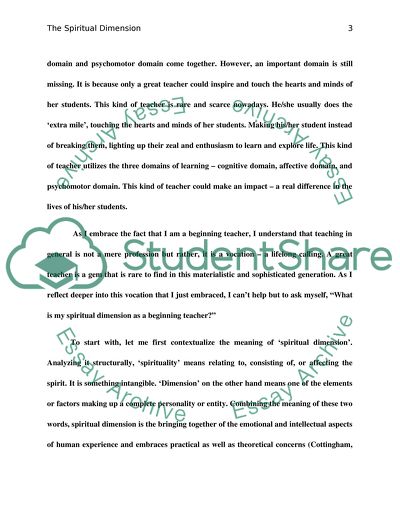Cite this document
(“The Spiritual Dimension of Being a Beginning Teacher Essay”, n.d.)
Retrieved from https://studentshare.org/psychology/1418388-the-spiritual-dimension-of-being-a-beginning-teacher
Retrieved from https://studentshare.org/psychology/1418388-the-spiritual-dimension-of-being-a-beginning-teacher
(The Spiritual Dimension of Being a Beginning Teacher Essay)
https://studentshare.org/psychology/1418388-the-spiritual-dimension-of-being-a-beginning-teacher.
https://studentshare.org/psychology/1418388-the-spiritual-dimension-of-being-a-beginning-teacher.
“The Spiritual Dimension of Being a Beginning Teacher Essay”, n.d. https://studentshare.org/psychology/1418388-the-spiritual-dimension-of-being-a-beginning-teacher.


